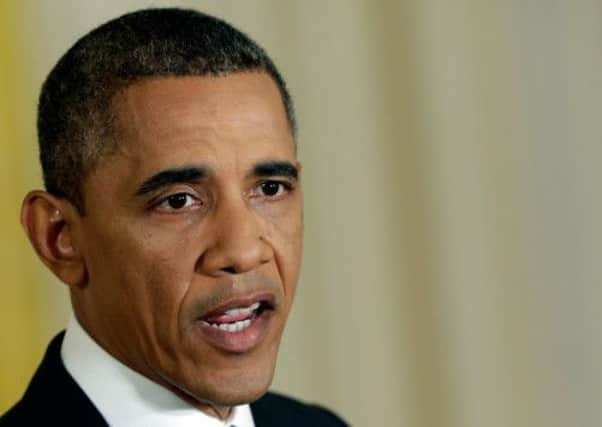Obama insists phone spying on Americans will go on


During a news conference last night, Mr Obama tried to quell the anger over the spying programme that has been kept secret for years and that the administration initially claimed had never existed.
He said he was confident the programmes are “not being abused” but that they must be more transparent.
Advertisement
Hide AdAdvertisement
Hide AdHe gave no indication he was ready to end the massive collection of information about Americans’ telephone calls and email, but said he would release more information about how it gathers intelligence.
He maintained he had called for a review of the secret surveillance before details of the documents National Security Agency whistleblower Edward Snowden leaked to reporters were publicised in June.
Mr Obama also explained that he planned to publish more information about the legal rationale underpinning the bulk collection of phone records without individual warrants.
The programme was authorised under the Patriot Act, which Congress hurriedly passed after the September 11 terrorist attacks in 2001, though Mr Obama reiterated it did not allow the government to listen to phone calls without warrant.
The changes Mr Obama put forward include creation of an outside advisory panel to review US surveillance powers and the creation of an independent lawyer to argue against the government before the nation’s surveillance court. But most of this work will be done in secret.
In his first press conference since April, Mr Obama also explained his decision to cancel a summit meeting next month with Russian leader Vladimir Putin.
Russia’s decision to grant asylum to Snowden was not the only reason for calling off the meeting, Mr Obama said.
He encouraged Mr Putin to “think forward instead of backwards” on a long list of issues.
Advertisement
Hide AdAdvertisement
Hide AdIn wide-ranging comments lasting nearly an hour, Mr Obama also said it would not be appropriate to boycott the forthcoming Winter Olympics in Sochi, despite Russian laws that discriminate against gays and lesbians.
The president said he did not consider Snowden, who is charged in federal court with violations of the Espionage Act, as a whistleblower or “patriot”. He invited Snowden to return to the United States to defend his actions.
During the conference, Mr Obama said: “Given the history of abuse by governments, it’s right to ask questions about surveillance, particularly as technology is reshaping every aspect of our lives.”
Talking of his relationship with Russia, he said: “Frankly, on a whole range of issues where we think we can make some progress, Russia has not moved.”